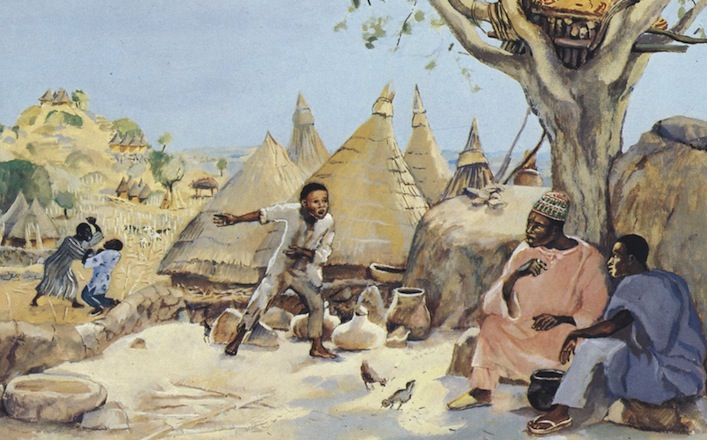Commentary on Romans 14:1-12
An English proverb says, “Faults are thick where love is thin”; but God demonstrates the opposite and to a greater extent: “faults are thin where love is thick.”
In the first half of the letter to the Romans, Paul focuses on God’s love for believers: “God shows his love for us in that while we were still sinners, Christ died for us” (Romans 5:8).
Now, in the second half of the letter Paul emphasizes the love that believers must show towards each other because of the love they have received. For example, “Owe no one anything except to love each other, for the one who loves another has fulfilled the law” (Romans 13:8-10). The exhortations of chapter 14, however, suggest that in this community, love is thin because faults are thick.
Our passage belongs to a series of ethical exhortations in which Paul brings God’s gift of redemption in Christ to bear on the life of the Christian community in practical ways (Romans 12-15). Some believe that the section spanning from 12:1–15:13 addresses a series of hypothetical situations, because Paul does not give specific details about his audience and because the text shares some content with 1 Corinthians 8 and 10. But this section of Romans differs from the Corinthian correspondence, for example, in Paul’s lack of attention to idolatry. It also contains content that points back to earlier parts of Romans, which suggests that Paul is not merely giving general exhortations but speaking to particular situations facing the community.
At the beginning of this section (Romans 12-15), Paul calls his audience to offer their bodies as a (collective) sacrifice and to be transformed by the renewal of their minds (12:1-2). The actions and attitudes about which Paul subsequently exhorts his audience provide examples of what it looks like for them enact this calling. With their Spirit-transformed minds, they are to think rightly about themselves and each other as members of the body of Christ and individually members of one another (12:3-8). Their actions are to be fueled by love and enacted in such a way that takes account of others.
In Romans 14 Paul addresses conflict in the body of Christ about ceremonial practices that are peripheral to the gospel. Some — whom Paul calls the “weak” — believe that, according to Jewish tradition, certain foods are to be avoided and certain days are holy. Others — normally called the “strong” by way of contrast — believe that all foods and all days are equally fitting for believers to enjoy.
Paul is not addressing the issue of righteousness by works of the law or suggesting that the weak are somehow seeking a “works-righteousness.” Rather, he sees the choice about practice as of a matter of conscience and an expression of faith (Romans 14:5-6). Paul largely directs his words to the “strong” because the issue with which he is concerned is the absence of love and unity in the body of Christ. While the practices regarding food and days are peripheral to the gospel, the way believers in the community treat one another is central to it.
Thus, Paul repeatedly warns these believers not to judge others in the community of faith, in Romans 14:3, 4, 5 (twice), 10. He reminds them that when they pass judgment on others, they assume a role that belongs to God. He asks them why they take the role of judge over other peoples’ servants (verse 4). By acting as judge, the “strong” fail to acknowledge that only the servant’s master has the right to assume this role (verse 4). In fact, God, the master of all believers (see Romans 6:20-23) “is able to make them [the weak] stand” at the judgment (14:4b). Paul then asks his audience why they stand in judgment over their brother or sister (verse 10). He reminds them that no one has the right to this role because “we will all stand before the judgment seat of God” (14:10).
We ought to read these words in light of 5:2, where Paul writes that, “through him we have obtained access to this grace in which we stand.” On the basis of Jesus’s death and resurrection, God welcomed all believers as those who were weak and sinful (Romans 5:6-10). From this perspective, no one approaches God in the “strong” category. The point in chapter 14 is that all believers are together the weak-made-strong who stand in God’s grace now, and who will be made to stand confidently at the judgment because of God’s gift of redemption in Christ. Since this is the case, who are we to sit in judgment over one another?
So Paul exhorts his audience to take on the role or calling that does belong to them as members of one body in Christ (see Romans 12:5). In this role, their task is to manifest love and unity as Christ’s servants (see Romans 12:9-10; 13:8-10). Like Christ, Paul writes, “we do not live to ourselves, and we do not die to ourselves” (14:7). Rather, we live and die to the Lord and so belong to him (verses 8-9).
Paul’s exhortations in chapter 14, to build unity rather than pass judgment, contribute towards his larger vision of the goal of the gospel. He envisions Jews and Gentiles transformed into the image of Christ, together worshiping and giving glory to God: “May the God of steadfastness and encouragement grant you to live in harmony with one another, in accordance with Christ Jesus, so that together with one mouth you may glorify the God and Father of our Lord Jesus Christ” (Romans 15:6; see also verses 7-8). In order to realize this vision fully, the church has a unique role to play in a world rife with disunity, criticism, and blame. We may reflect the love of God in Christ by living among our brothers and sisters as those who are thick with love and thin with faults.


September 17, 2017